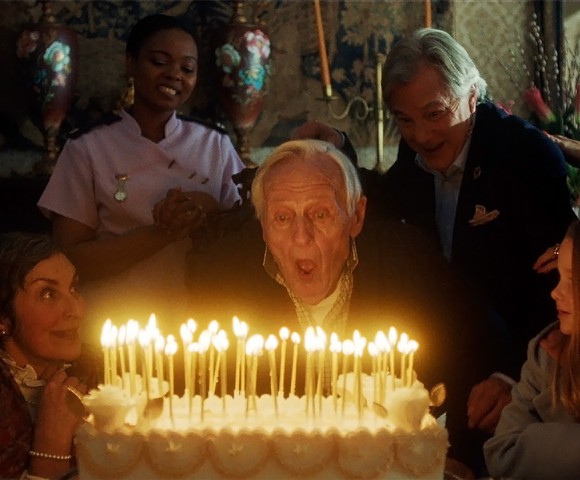- Kenrick Newport
- March 24, 2022
Thinking of setting up a trust? Here are some facts you need to know
Most people know about Trusts, but few people know the details. And as everybody knows, the devil is in the details.

Most people know about trusts, but few people know the details. And as everybody knows, the devil is in the details. As Capital Legacy is the country’s leading provider of wills we get to set up and manage hundreds of trusts for our clients and have learnt a few things over the years we would like to share.
A trust can be defined as a “legal entity created by a party (the founder) through which a second party (the trustee) holds the right to manage the trust's assets or property for the benefit of a third party (the beneficiary)”.
There are two types of trusts in South Africa, namely testamentary trusts and living (inter vivos) trusts. A testamentary trust is set up in terms of the will of a testator and only comes into effect after the death of the testator. An inter vivos trust or living trust is set up during the lifetime of the founder and is a contract between the founder and the trustees(s). Inter vivos is a Latin phrase which means “while alive” or “between the living”.
You may need a trust if the following factors are applicable to you:
- You have minor children, and you want to leave your assets to them.
- Your assets (including life policies) exceed R3.5 million.
- Your assets consist of capital appreciating items.
- You want to control how/which assets are passed onto your heirs.
- You need asset protection planning.
From this list we can see that the contents/reasons for creating a trust may vary, and this erases the idea of trusts being reserved for an elite group of people. Any individual who deems it necessary, can create a trust.
The two types of trusts, namely testamentary trusts and living trusts, have different sub-categories. The sub-categories are not mutually exclusive of each other.
1) Discretionary and non-discretionary trusts
a) Inter vivos discretionary trust
This type of trust is set up during the lifetime of the founder and in it the founder gives the trustees absolute power over trust assets and income for the benefit of the beneficiaries. This type of trust should interest you if your priorities are asset protection and estate planning. Living trusts are created by the drafting of trust deeds and registering the trusts with the Master of the High Court. The trust comes into effect as soon as it is registered.
b) Inter vivos non-discretionary trust
This is another sub-category of an inter vivos trust and is beneficial for estate planning. In this type of trust, the trustees do not have absolute discretion. This is a trust which is created during the lifetime of the founder.
2) Testamentary trust
This kind of trust can be discretionary or non-discretionary. It is a trust which becomes valid when the testator passes. The trust is usually set up to care for family members who are too young to receive bequests directly. Alternatively, it can also be where the trust is only available to these minors at a certain age, according to the wishes of the founder.
3) Special trust
Any trust (inter vivos or testamentary) where the beneficiary(ies) is not of the age to receive a bequest or is a disabled person, it is called a ‘Special’ trust and is taxed as if it were a natural person. It can be discretionary or non-discretionary depending on the wishes of the founder/creator of the trust.
Why trusts may not always be a good idea
The factors mentioned underneath should be looked at before deciding on setting up a trust or not:
Costs to establish:
Establishing a trust can be quite complicated, which makes it a must that it be done by a professional person. Lawyers and other specialists in the fiduciary field are expensive and it could cost you a bundle. When you establish a family trust the trust must have an independent trustee who have to be compensated for their work.
Tax:
The income of a trust is currently being taxed at the highest rate applicable to individuals, being 45% percent. Capital gains are taxed at the highest effective rate applicable to any taxpayer, being 36%. Rebates can only be claimed by natural persons from a tax perspective and therefore, trusts cannot claim rebates.
Administration:
It is of the utmost importance that the records of trusts are kept up to date. These documents need to be detailed and updated like clockwork.
This includes:
- keeping all records from inception of the trust to at least 5 years after the trust has been deregistered,
- maintaining a separate bank account for all trust cash flows,
- passing trustee resolutions on every transaction,
- maintaining an asset register,
- providing financial statements, income tax returns and bi-annual provisional tax returns.
This can become very complicated and time-consuming, especially when the trust owns and controls multiple properties and assets.
Relinquishment of control:
SARS may deem income back to the donor of the asset if there is not an adequate relinquishment of control over the asset. A court may investigate the trust if there is not an adequate separation of control between the trustees and the trust assets.
Claiming money back from a trust:
In the case where a trust releases funds at a certain age, it is often the responsibility of a guardian to look after the beneficiary financially. Once the trust commences, the guardian may claim their money back from the trust.
How do you ensure that you are making the right decision?
Every person’s needs and requirements are unique and setting up trust structures may benefit some people but not others. In some cases, the use of a trust can be detrimental to your desired estate plan outcome, incurring unnecessary expenses and other complexities. For this reason, it makes sense to engage with a professional who understands not only the implications of these structures whilst you are alive, but also when you wish to leave an inheritance to your spouse and children when you pass away one day. Capital Legacy deals with hundreds of estates and is well positioned to advise on best practice and pitfalls when considering using the various trust structures.
At Capital Legacy we have created purpose-driven trusts, being the following:
Legacy Children’s Trust™
A Children’s Trust is created for minor children (under the age of 18 years) at the time of the Testator’s death and remains in force until the children reach the age specified in the will and are capable and mature enough to manage their own finances.
A Children’s Trust is classified as a Type B testamentary Trust which is allowed certain beneficial tax exemptions by SARS.
Legacy Widow’s Trust™
A Widow’s Trust is a testamentary trust which is created to protect the surviving spouse, who may be financially illiterate or potentially incapable of dealing with the funds inherited.
The spouse should be the sole income beneficiary of the trust for the duration of their lifetime.
The purpose of the Widow’s Trust is to provide spouses with an income whilst preserving the capital of the trust to ensure this inheritance can still pass on to the children.
Legacy Provider’s Trust™
A Provider’s Trust is established to ensure the ongoing financial support of an individual who may not be in a position to financially provide for themselves or manage their own finances.
An example would be children with special needs such as autism or Down’s syndrome.
In many cases, special needs children can out-live their parents and the Provider’s Trust ensures their inheritance is not squandered by guardians or other family members. Usually, special needs children require special medical care and ensuring their financial well-being is a parent’s greatest concern.
For more information or to arrange your complimentary will consultation, speak to your financial advisor or contact Capital Legacy.
Whether you’re in need of a
will, life insurance, education
cover,
or the power of all three, we have got you covered.


